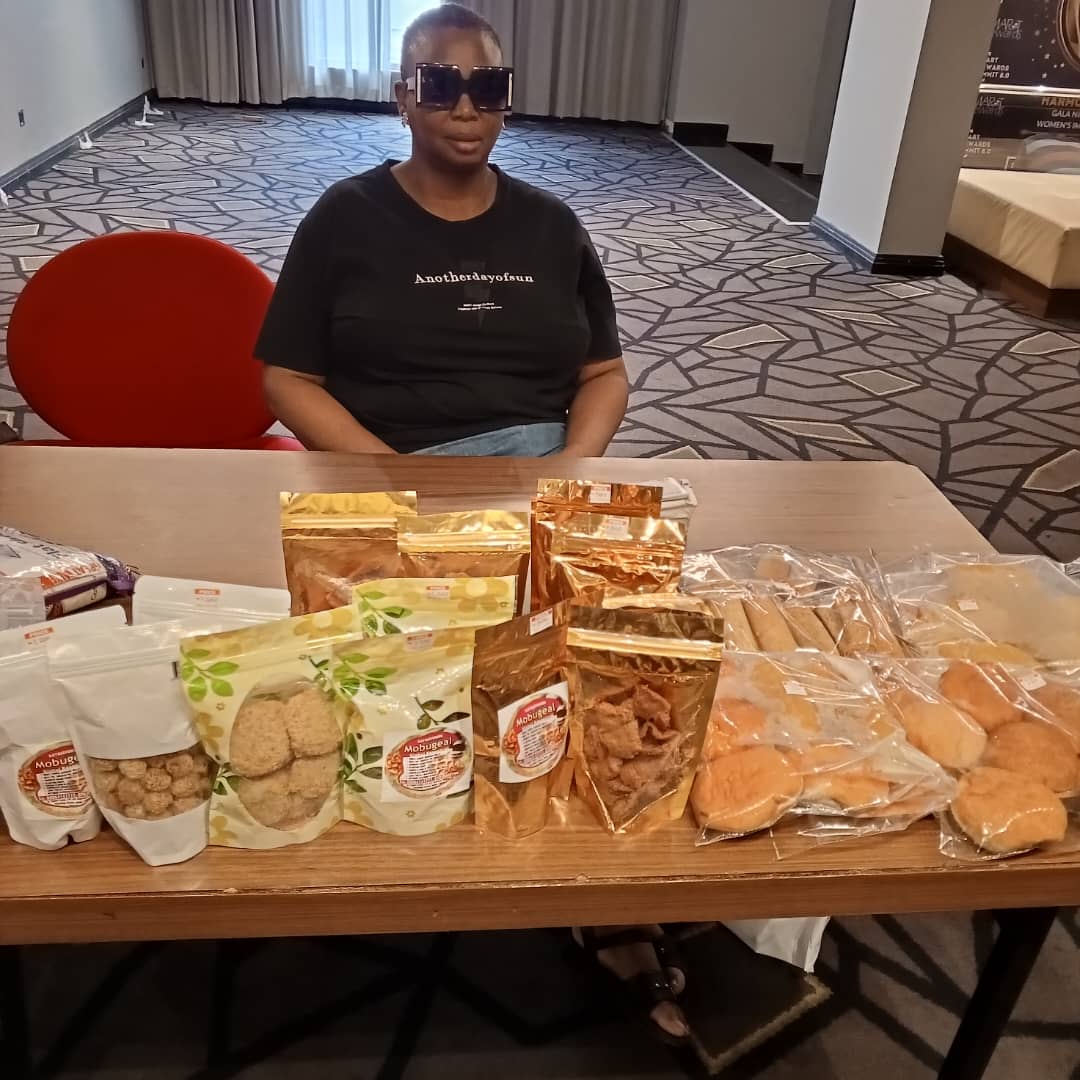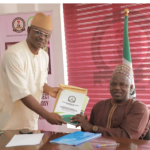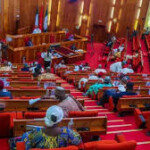First Bank, UBA, GTB, others target vision-impaired Nigerians of all disability clusters for discrimination.
Gbenga Ogundare
Her vision-impairment regardless, Bukola Ogunsanya has capacity well enough to manage her confectionery business and its finance without much help. She’s been doing that for more than 10 years in Lagos. And with the adoption of fintech in Nigeria, she understands too well almost all transactions are now completed with a swipe of the ATM card on a PoS terminal.
She as well appreciates the independence payment technologies bring, and the participation they provide for every eligible citizen. Especially with the progress the CBN financial inclusion policy is making. The Enhancing Financial Innovation and Access (EfinA) 2023 survey says just 25 percent of the population remains out of the financial system.
So Ogunsanya had thought little of a vision-impaired business owner seeking to get an ATM card—until she attempted to get one at Polaris Bank early this year.
“Polaris bank refused to give me ATM card because of my disability. They said I should bring someone that will be a signatory to my account before they can issue me an ATM card,” Ogunsanya told ER.
Embarrassed, the blind baker swallowed the discrimination, and walked away after collecting a form meant for the third party who will serve as her signatory. She didn’t return. “I decided I will not allow Polaris Bank stress me unnecessarily; so it’s better I avoid them and their ATM card altogether,” Ogunsanya said.
Her experience wasn't random. Many blind entrepreneurs and bank customers, including a lawyer, ER interviewed revealed it is a pattern. And it is now set against persons with vision-impairments. This is in spite of the Discrimination Act 2018, the Protocol to the African Charter on the Rights of PWDs, the CBN Financial Inclusion Strategy, and the Bankers’ Committee Sustainable Principles— all promoting and providing for integration of PWDs into the financial system.
Bukola Williams, another blind entrepreneur who sought to renew her ATM card at the same bank early this year, got a similar treatment. “I almost fought one of their staff at Omole Phase 1,” she said. “They refused to give me except I bring a family member.”
Polaris Bank wouldn't be moved by her loud protest in its banking hall, anyway. So Williams took her fight to the Ebute-Meta branch of Skye bank where she opened her account two decades ago before the bank morphed into its current corporate identity. “I showed my account officer the ID card Skye Bank gave me then,” she told ER.

Ogunsanya
The CBN Financial Inclusion Strategy mapped out by the Monetary Policy Department has a Special Intervention Working Group for Women and Persons with Disabilities. Had the bank demonstrated respect for the directives of the working group, the two blind entrepreneurs would not have had those challenges—let alone fight. Except the strategy exists only in paper. The apex bank didn’t respond to ER clarification on the policy.
For Williams, going all the way became the alternative.
“I queried why Polaris Bank will not mind my blindness if I come to make a deposit but will refuse me an ATM card because of my sight loss,” she said.
The passion in her question moved her account officer to call the customer care desk. They later approved the card renewal, apparently, out of pity,
But the Discrimination Act 2018 makes no provision for pity’s sake. Its section 1 states: A person with disability shall not be discriminated against on the ground of his disability by any person or institution in any manner or circumstance.
Go to court or be damned!
Move over to Ebonyi.
Mirian Ogonia was unfortunate at a First Bank branch in Afikpo North where she hoped to open a savings account in 2016. The discrimination came on a different level.
“The bank refused to open a savings account for me. Instead, they offered a “First Assistance Account,” which is a student account,” she told ER. Usually, First Bank offers that product to minors under the management of their parents. Not adult customers like Ogonia.
The peanuts maker doesn't like someone else deciding for her in matters like this, but she allowed the bank treat her like a child all the same. The barrier, however, wouldn't just go away. When she requested for an ATM card, they insisted she complete an indemnity form, and obtain an affidavit from the court.
The indemnity undertaking transfers all risks, including those inherent in banking operations, to customers. And its wording is the same across the banks.
“In furtherance of the bank acceding to my request for the issuance of a ATM card to me, I hereby waive all rights of actions or defences I may have against the bank in connection with all matters contemplated herein,” the First Bank form states in part.
From interviews ER conducted, it is clear First Bank—or any of the three others—doesn’t require this of other customers. Not even those with other disabilities.
But Ogonia wasn’t going to be dispirited. She filled out the indemnity form, and visited the court for a sworn affidavit.
First Bank wouldn't be impressed with her tenacity, after all. She didn’t get the ATM card. Her deposit remained stranded in the bank’s vault until 2017 when circumstances brought her to Lagos. Immediately, she ventured to test the FBN claim of being “The Bank That Puts You First”.
It turned out Ogonia was nowhere in the thought of the bank. Not inclined to give up, the lady switched on her feminine charm to get what she wanted. “And when the male staff began to question how I will be able to use the ATM card independently, I just disarmed him with a smile and told him never to worry.”
In his own case, Anuoluwapo Ojo had no option but to endure the stress of obtaining a judge's signature on a form UBA insisted he complete in 2019.
“Despite multiple visits to the Yaba High Court and hours spent, I was unable to get a judge to sign the form for me.”
Beaten, Ojo jettisoned his pursuit of an ATM card. It was a friend of his who pulled wires at another branch, and helped Ojo beat the barriers later.
Sign or resign to fate
The discrimination against blind customers varies across Nigerian banks and their branches. What is, however, constant in all is obvious: the newness of the banking procedure which now interferes with the independence of blind customers carrying out financial transactions.
At the UBA branch in Egbeda, Lagos, in July, the reporter requested to open a savings account. The bank’s offering didn’t require any affidavit, a third-party, and indemnity agreements.
But the account officer insisted on having a signature.
The plea for an alternative, a thumbprint, didn’t move the officer and her superiors.
“No, we don’t have provisions for that.”
The complaint of illegible letters wouldn’t have any effect, either.
“I’m afraid that is the only option you have,” the officer said. “And you need to practise it because you are going to sign another form, and your signature must be consistent.”
His signature didn’t end the face-off. On August 19, the bank issued him his ATM card, but then passed him the indemnity form, complete with a blank for a magistrate’s signature.
“He can leave out the magistrate's signature,” the staffer told the guide.
A legal document shipping all financial transaction risks to a blind customer shouldn’t demand a court seal just to stampede him into submission. Things, however, escalated. The bank then took back his ATM card, and will keep it until the indemnity form returns, duly signed as the receiver argued. The service fee deduction and the account balance, trapped, now amount to a loss.
His similar experience at First Bank, Sobo, with its ‘Jurat’ indemnity invocation, came short of just the drama.

UBA's indemnity form
The demand that blind customers sign on printed documents before they access bank services isn't peculiar to UBA and First Bank. GTB mounts that barrier against the community, too, Afolabi Olawale told ER.
His ordeal began in 2010 at the bank’s Abule Egba branch. A staffer insisted he sign some documents.
"They said someone else could sign for me, but I wondered why." Olawale recalled. “I thought they would provide ink for thumb-printing.’
They told him there is no provision for that.
That scared him away until 2020 when Covid-19 emergencies propelled him to enlist the help of a church member working at another UBA branch. The friend later facilitated the process, and got Olawale an ATM card.
But the relief was short-lived.
At the Nnamdi Azikiwe University branch in Anambra, Olawale’s signature became an issue three years later when attempting to renew the card. The bank stated he had to complete a special form requiring a third party information and signature. Olawale described it as an insult and invasion of his privacy.
He either sign or have his money trapped like First Bank did to him in 2019. Then his request for an ATM card was turned down, a staffer told him, because of a corporate policy.
"They said, ‘How do you want to use it as a blind person? It’s not possible,’” Olawale recalled. So he surrendered to the dictate of UBA.
He would later report the bank’s action to the James Lalu-led National Commission for Persons with Disabilities (NCPWD) in Abuja in February. The commission got the petition. “The error may take a little while to get the CBN deal with the issue due to the complicated bureaucracy,” its compliance department noted in a March follow-up email. The director of legal department, Joseph Okon, also told ER he would raise this matter afresh with the new executive secretary.
Heading to court
The lawyer and rebel in Lukman Salami would not be so oppressed. When First Bank, the Ogba branch, Lagos, insisted he complete an indemnity form and have a judge sign it, he kicked.
The last ATM card that expired would be the third he would be using since he opened he account 12 years ago, he revealed. “So I was shocked when I was given a special form to fill and have it signed in court before they can issue me another ATM card,” Salami told ER August 9.
He had a conversation with the branch manager who confirmed the barrier was a policy from the headquarters. UBA, GTB and Polaris appealed to their respective headquarters—or the CBN (when it was convenient)—when their blind victims demanded official explanations.
ER couldn't get a response to all its requests to the Banks’ corporate communications managers asking for clarification and the particular CBN’s directive discriminating against blind clients. The CBN complaint department also refused to respond to enquiries about its treatment of the PWDs’ petitions. A source within the regulator, however, doubted such a directive came from the CBN. “I don’t believe there’s anything like this in any of the CBN guideline,” Bunmi Adebiyi, a vision-impaired staffer, told ER.
The Joint National Association of Persons with Disabilities chairman (Lagos chapter) would not be stampeded by the bank and its ‘unfair policy’.
“When I got back to my office I told a sighted person to help me go through the form for visually impaired people,” Salami said. The bank stated there Salami must appoint a legal person who would help him operate the account with first bank.
“It also contained another paragraph explaining the need to have an interpreter that would help me translate from English— like visually impaired persons are not educated enough to understand English.”
What struck him the hardest was the paragraph explaining the bank wouldn’t be responsible for any errors, malfunctions or fraudulent acts in his account even if they result from its negligence.
“I find these very unfair and discriminatory,” he said.
Salami vowed to seek redress in court, an action many blind persons already so humiliated wished they could take. The bank may ignore the pre-action claim he already made, asking them to reverse the decision or issue him an ATM on other terms like other customers.
“I have two grounds to rest my case on: a violation of the Discrimination Act and a breach of customer-bank card relationship.”
First Bank, UBA, GTB, Polaris are among other financial institutions that committed to the Sustainable Banking Principles Nigerian banks approved in 2012—to increase the sector’s social impact, and protect its human and physical environments. Its No. 5 of the 9 principles states: We will promote financial inclusion, seeking to provide financial services to individuals and communities that traditionally have had limited or no access to the formal financial sector.
It is an ethical decision, anyways. And when they can, it appears, the banks don’t mind dodging the cost—of creating voice passwords features or dedicating phone lines—for their blind customers.
The disability commission has admitted to red tape stalling its momentum in taking this up. And here is an adversary that answers to nobody in matters of ethics. Certainly, Salami, Williams, Olawale, and others in the blind community would soon realize the odds they are up against.
UBA, First Bank, GTB, Polaris, and others may not only continue to avoid the cost of including the blind; they may also get away with violating the Discrimination Act.
*This story was supported by the Centre for Journalism Innovation and Development (CJID) under its institutional support for newsrooms on disability and inclusive reporting.







